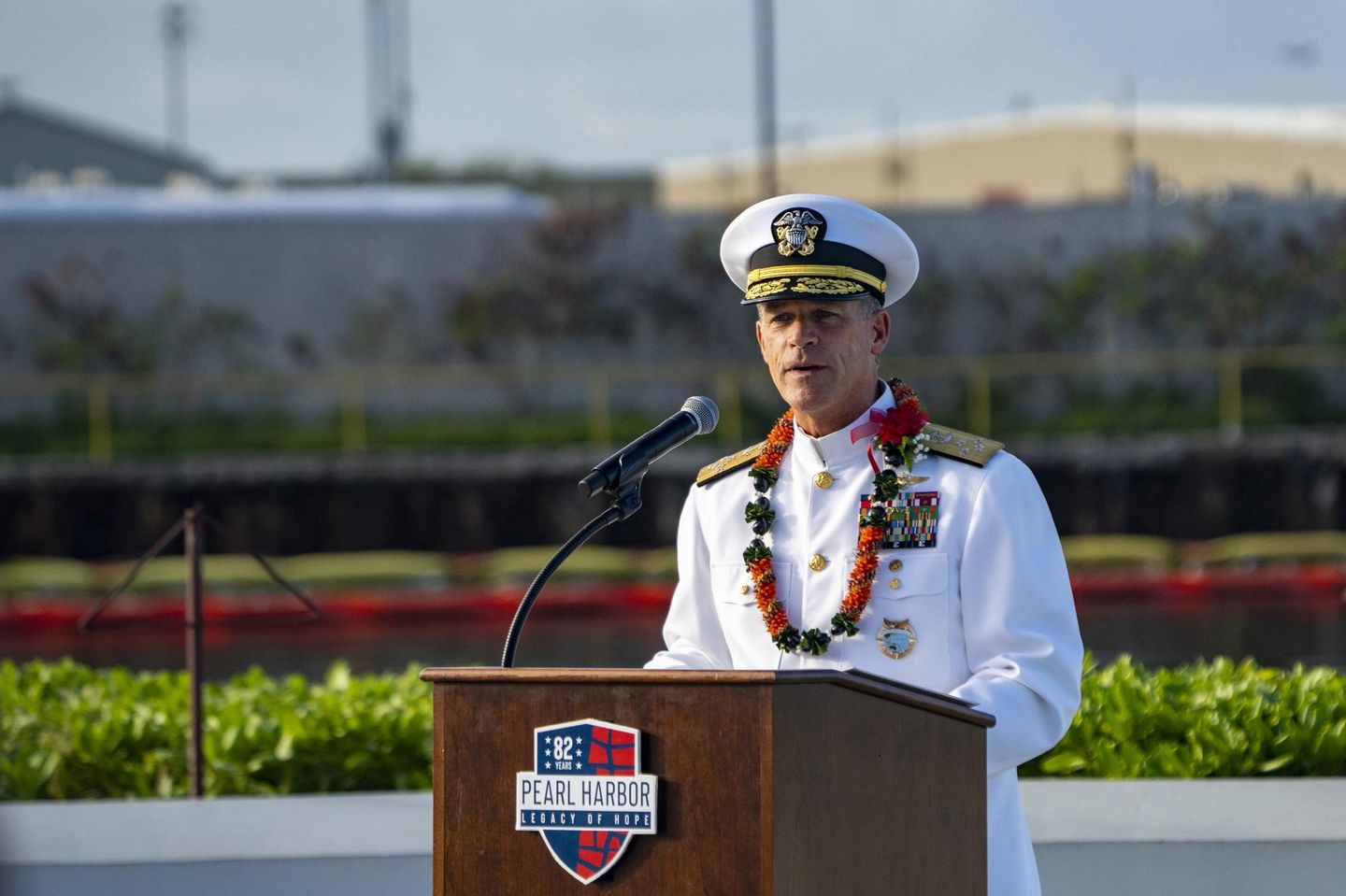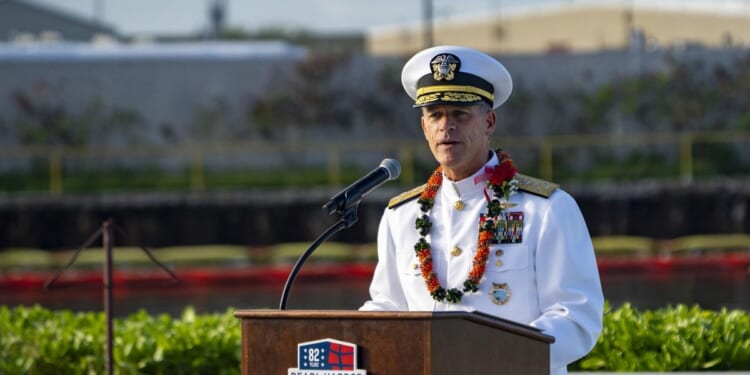
U.S. and Chinese military officials met in Hawaii this week for the first meeting in three years of a group set up to improve communications and avoid military mishaps in the Asia Pacific region, the U.S. Indo-Pacific Command said Friday.
The Military Maritime Consultative Agreement working group session followed charges last fall by the Pentagon that Chinese warplanes carried out large numbers of risky and sometimes dangerous aerial encounters close to U.S. and allied surveillance aircraft operating in international airspace.
The Hawaii sessions included officials from Indo-Pacific Command, the Navy’s Pacific Fleet and the Pacific Air Forces, who met officials of the People’s Liberation Army in Honolulu Wednesday and Thursday. It was the first such meeting since December 2021.
The meetings were among several U.S.-China exchanges suspended by Beijing in protest of the visit to Taiwan in August 2022 by then-House Speaker Nancy Pelosi. The PLA followed the cancellation of the exchanges with large-scale military exercises around Taiwan that U.S. defense officials said included practice for an island invasion.
President Biden and Chinese President Xi Jinping agreed to resume to the maritime talks after a summit in Woodside, California in November. The two leaders also discussed the talks in a phone call on Tuesday.
No details of this week’s U.S.-China military exchanges were made public.
China‘s military in the past has demanded that American military ships and aircraft first obtain permission from Beijing before conducting surveillance flights or naval “freedom of navigation operations” in contested waters around the region.
The Pentagon has rejected the claims, saying international law permits operations in the global commons that are no nation’s sovereign airspace or maritime territory.
As the Biden administration has tried to ratchet down bilateral tensions, U.S. defense officials told reporters earlier this week that provocative Chinese activity against U.S. warships and warplanes had decreased.
“We’ve observed a reduction in unsafe behavior between us and PLA aircraft and vessels over the last several months,” one senior military official said. “So, we’re encouraged by that, and we’re happy that we have this opportunity with the MMCA to talk about ways to make sure that trend continues in the right direction.”
But Chinese military activities against Taiwan and Philippines appear to be increasing, including daily Chinese warplane incursions into Taiwanese air defense zones that rose sharply in number following the phone call on Tuesday between Mr. Biden and Mr. Xi.
Taiwan‘s Defense Ministry reported that 30 PLA aircraft and nine PLA warships were operating around the island shortly after the call.
Philippines President Ferdinand Marcos Jr. is slated to come to Washington next week along with Japanese Prime Minister Fumio Kishida for talks with President Biden.
Main forum
Army Col. Iran Francis, who led the U.S. delegation to the talks, said the working group is the main forum for directly addressing air and maritime operational safety issues with the PLA.
“The United States will continue to operate safely and professionally in the Indo-Pacific wherever international law allows, and we take this responsibility seriously,” Col. Francis said in a statement.
“Open, direct and clear communications with the PLA — and with all other military forces in the region — is of utmost importance to avoid accidents and miscommunication.”
Col. Francis said the U.S. side was “encouraged” that the PLA is following through with commitments to the working group. American officials also look forward to “future productive discussions” aimed at safeguarding the safety of military operators in the region, he said.
The Military Maritime Consultative Agreement was signed in 1998 in an effort to avoid confrontations and conflict by U.S. and Chinese warships and aircraft.
Retired Navy Capt. Jim Fanell, a former intelligence director for the Pacific Fleet, criticized the military meeting as one of the last acts of outgoing Indo-Pacific Command commander Adm. John Aquilino.
The talks took place at Indo-Pacom headquarters in Honolulu near “the eternal resting place of thousands of American sailors entombed aboard the USS Arizona in Pearl Harbor,” Capt. Fanell said.
Despite the sacredness of the location, the military exchanges were held with PLA counterparts “in the false hope that these talks would somehow reduce tensions in the Indo-Pacific region,” Capt. Fanell said.
“Unfortunately, and unsurprisingly, in preparation for this meeting the PRC ramped up the PLA’s activities in the region from threatening our friends and allies in Taiwan, Japan and the Republic of the Philippines,” he said.
The talks are evidence that the Biden administration is returning to the policy of engagement with China‘s Communist regime, a policy that he said should be rejected.
“Failure to change and to confront the existential threat of the [Chinese Communist Party] will result in the destruction of individual liberty and freedom in favor of totalitarian collectivism, aka communism — a failed ideology,” Capt. Fanell said.
Chinese state media did not cover the talks, focusing instead on this week’s visit to Beijing by Treasury Secretary Janet Yellen. Secretary of State Antony Blinken is also expected to visit China in the coming days.












